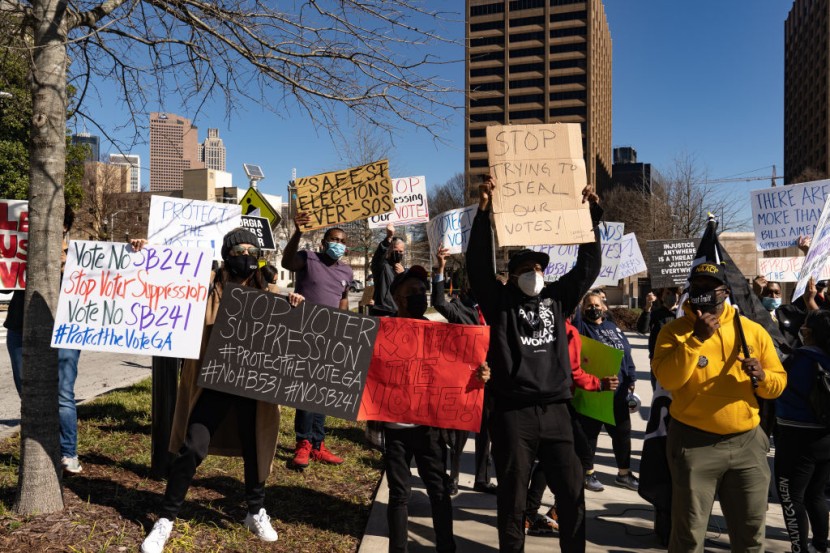
Brennan Center for Justice at New York University School of Law's new tally shows state lawmakers have passed nearly two dozen measures restricting ballot access since the 2020 election. Since 2011, when the Brennan Center counted 19 laws approved in 14 state legislatures, restricted voting legislation has increased to 22 in 14 states.
After a record number of Americans voted by mail in November, most of the new legislation makes it more difficult to vote absentee and by mail. Aside from the new laws, the Brennan Center's most recent report listed 61 legislation in 18 state legislatures advancing as of May 14. Bills that have submitted include those that have passed at least one chamber or have made significant progress in committee.
New laws in 14 states include measures that make it harder to vote
More than half of the 61 legislation currently being considered would limit absentee and mail-in voting. Approximately a quarter of the bills include measures addressing voter ID requirements and voter roll purges.
Though state lawmakers are likely to act fast to get their bills across the finish line, not every bill moving forward will succeed or even reach a vote. According to the National Conference of State Legislatures, all but 12 state legislatures plan to adjourn by June 30.
Per CNN, the Brennan Center has identified at least 389 bills introduced in 48 states since the election, including provisions that will restrict voting access. Vermont and Delaware are the only two states where lawmakers have yet to introduce a restricting voting bill.
Following record turnout in the 2020 election, the bill is part of a national Republican attempt to restrict access to the vote box. In 30 state legislatures, including Texas, Georgia, and Arizona, Republicans presently control both houses.
Read Also: Are You Eligible to Get a Bonus Stimulus Check on Top of Your Third IRS Payment? Here's How and Why
Schumer pushes vote on the election reform bill
Despite facing an uphill struggle in becoming law, Senate Majority Leader Chuck Schumer indicated Friday that the upper chamber would take up a Democrat-led federal election reform bill at the end of June, NY Post reported. In a "dear colleague" letter to members of his caucus shortly before the upper chamber's one-week recess, the New York Democrat said that the bill, known as SR 1, will be brought to the floor.
Top Democrats have spoken out in favor of the bill, stating that it will play a critical role in restoring voters' faith in the electoral system, removing dark money from politics, combating corruption, and expanding voting rights. However, Republicans and at least one Senate Democrat, Sen. Joe Manchin (D-WV), have expressed doubts about several provisions, making Schumer's route to 60 votes to end the filibuster limited.
Republicans have argued that it is a "power grab" by Democrats, claiming that their messaging has attempted to sow doubt in the democratic process. They cited language in the bill that would require states to provide mail-in ballots, a minimum of 15 days of early voting, and calls for the online vote, as well as same-day voter registration.
Related Article: Republicans' Legislatures Aim To Restrict Voter Access, Moves Further Apart from Democrats
@YouTube
© 2026 HNGN, All rights reserved. Do not reproduce without permission.








